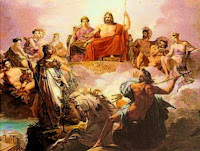
Do not judge a book by its cover and don`t be so judgmental, we are often told. It is wrong to have preconceived notions about something or someone and we should keep an open mind about everything and everybody. Easier said than done.
First of all, as we are growing up, parents are pushing us to have an opinion. Which one do you like and what do you think about this or that. I think every parent would like their children to be able to be a person with their own characteristics, not a zombie that simply follows orders (though as a parent myself, sometimes I would not mind the zombie version of a child!).
If the children have not made up their own minds, they would face more serious challenges during the formative school years. Teachers may tell you how to do things but again a good teacher would want you to become independent, have an opinion and start thinking in a critical manner.
I believe this is a struggle that certain socialist and dictatorial countries face. They have taught their kids to follow orders and to do as they are told. For many, language learning for example consists in memorizing grammar concepts and vocabulary. But what about creativity and imagination? Those are two aspects that many have undervalued and its influence is ample and broad. Without a certain amount of creativity most, if not all, activities would not be able to reach its maximum potential, and that includes science and technology!
The result of critical thinking is that people will learn to think critically. They will be able to think independently, see a problem from many angles and see through lies and manipulation. They will also be more outspoken, telling others what they believe to be a wrong approach or idea; in other words, they can make up their own minds and have an opinion.
Now opinions are great. They give us our individuality and as we know, in a free country like ours, everyone has a right to their own opinion, no matter how wrong we may deem them to be. All our own personal experiences form into clusters of schemata and become our lenses through which we see and interpret the world.
Here is where the problem lies. When we have reached midlife, we walk around with myriads of preconceived notions and judgments. We may have an opinion on a variety of objects, some of them more informed than others and in some we may be more confident than in others.
And suddenly they tell us we should not be so judgmental! After years of encouragement of having a mind of our own! This is a very difficult thing to do. We cannot just erase years of conditioning and personal experience.
A possible solution could be thus: Have an open attitude. I have previously blogged about the importance of humility. We need it here. There is no way we can ever exactly know what others are feeling or going through. All we have are only approximations. We know what it feels like to go through a difficult break-up from what may have happened to us in the past. But we will never know exactly how this person, a different individual may feel about his loved one, a different person with different sets of relationship variables.
As a result, I try my best to be as humble as possible. There are so many experiences I have never had and some I will never know about. I get glimpses of a similar experience, but I can never know for sure. When people deal with heartache, I can only know what it has felt for myself to be in a similar situation, that`s all. However, when women go through pregnancy and give birth, I cannot possibly know as a man what it feels like and am left with conjectures only. The problem is we do not really know, in fact, we will not fully understand or ever get the complete picture of many types of experiences in our lifetime. So all we are left with are our own little biased opinions that we need to shed from time to time to become open-minded.






























